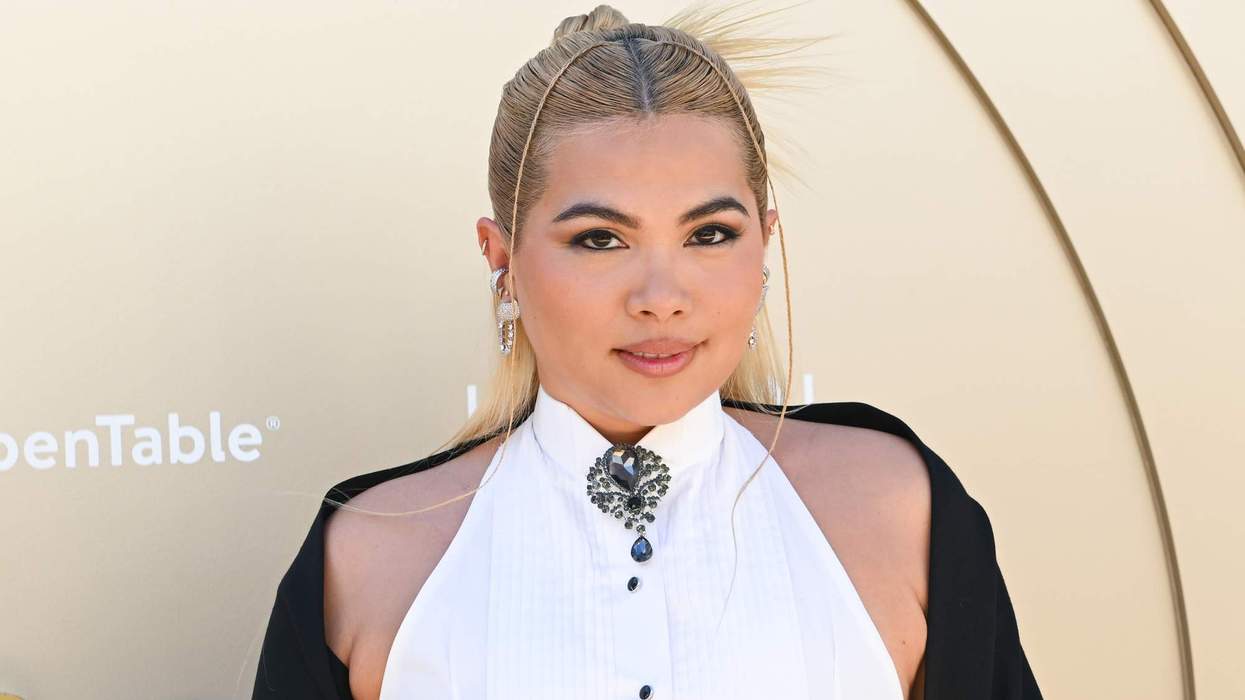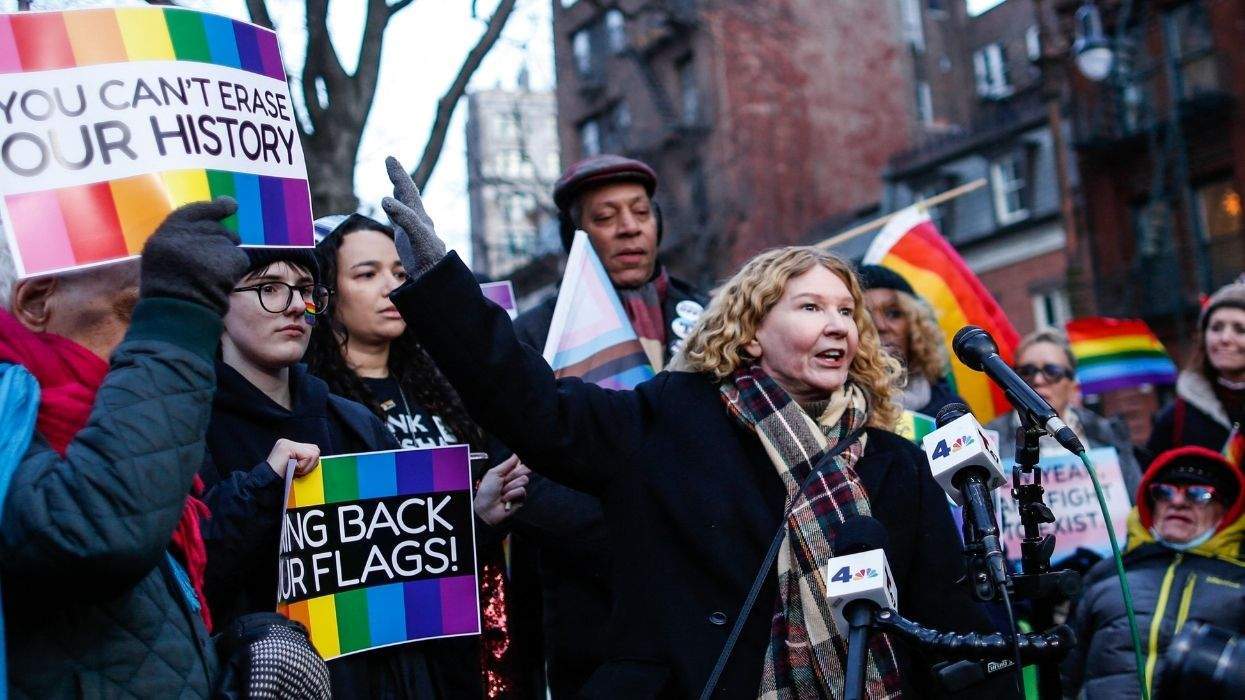It should be a cakewalk for civil rights activists, but the Supreme Court, being the Supreme Court, is ensuring that the case of Masterpiece Cakeshop v. Colorado Civil Rights Commission is anything but as it begins to hear arguments on one of the most important government civil rights decisions up for debate this year.
The case concerns Colorado baker Jack Phillips, who refused to make a cake for gay couple Charlie Craig and David Mullins' wedding, arging that doing so would violate his "religious beliefs." Colorado is one of 21 states to have a statewide law banning discrimination against LGBTQ people in public accomodations, and the Colorado Civil Rights Commission found Phillips' refusal to bake a violation of this law, prompting Phillips' case to move to the Supreme Court via appeal in June.
81-year-old Supreme Court justice Anthony Kennedy's opinion on the case could be the tiebreaker--he's been the author of all the court's top LGBTQ cases, including the 2015 decision that effectively made marriage equality the law of the land. ABC News reports that Kennedy has expressed sympathy for both sides of the case: He said that the Colorado Civil Rights Commission did not appear to be "tolerant nor respectful of Mr. Phillips' religious beliefs," but also noted that ruling in Phillips' favor could lead to shops putting up signs like "We do not bake cakes for gay weddings."
Although it's clear who is being discriminated against here, conservative American legal scholars are comparing the position of Masterpiece Cakeshop to Jews who were forced to convert under the Spanish Inquisition, a this excellent story in Quartz illuminates.
Edie Windsor's attorney in the historic gay marriage case United States v. Windsor, Roberta Kaplan, released this statement about the case:
"As today's oral arguments made clear, the Masterpiece Cakeshop case is not about either religious liberty or free speech -- it is about whether a business can treat certain groups of Americans as second-class citizens. I remember my grandmother telling me about hotels with signs that read "No Jews Allowed" when she and my grandfather were on their honeymoon in the South in the 1930's. Fortunately, Supreme Court precedent since then dictates that religious freedom does not exempt business from civil rights laws. And a bakery is not exercising its right to free speech when it agrees to sell a cake to one set of customers, but refuses to sell the same cake to others. A ruling in favor of the baker here would presage a return to the days of Jim Crow, but this time for our LGBT friends, neighbors and family members."
If the Court were to rule in Phillips' favor, they would be ruling in favor of a constitutional right to discriminate based on religious exemptions, which would directly contradict previous decisions they've made. A ruling in favor of the baker could mean doctors, lawyers, real estate companies, and countless other businesses throughout the country would be allowed to refuse service to LGBTQ citizens.
The ACLU, who are defending couple Craig and Mullins, said in a statement: "The question is whether a shop like Masterpiece Cakeshop can put up a sign in its window saying, 'Wedding cakes for heterosexual couples only.'"
A decision from the Court could come as late as June of next year.






























